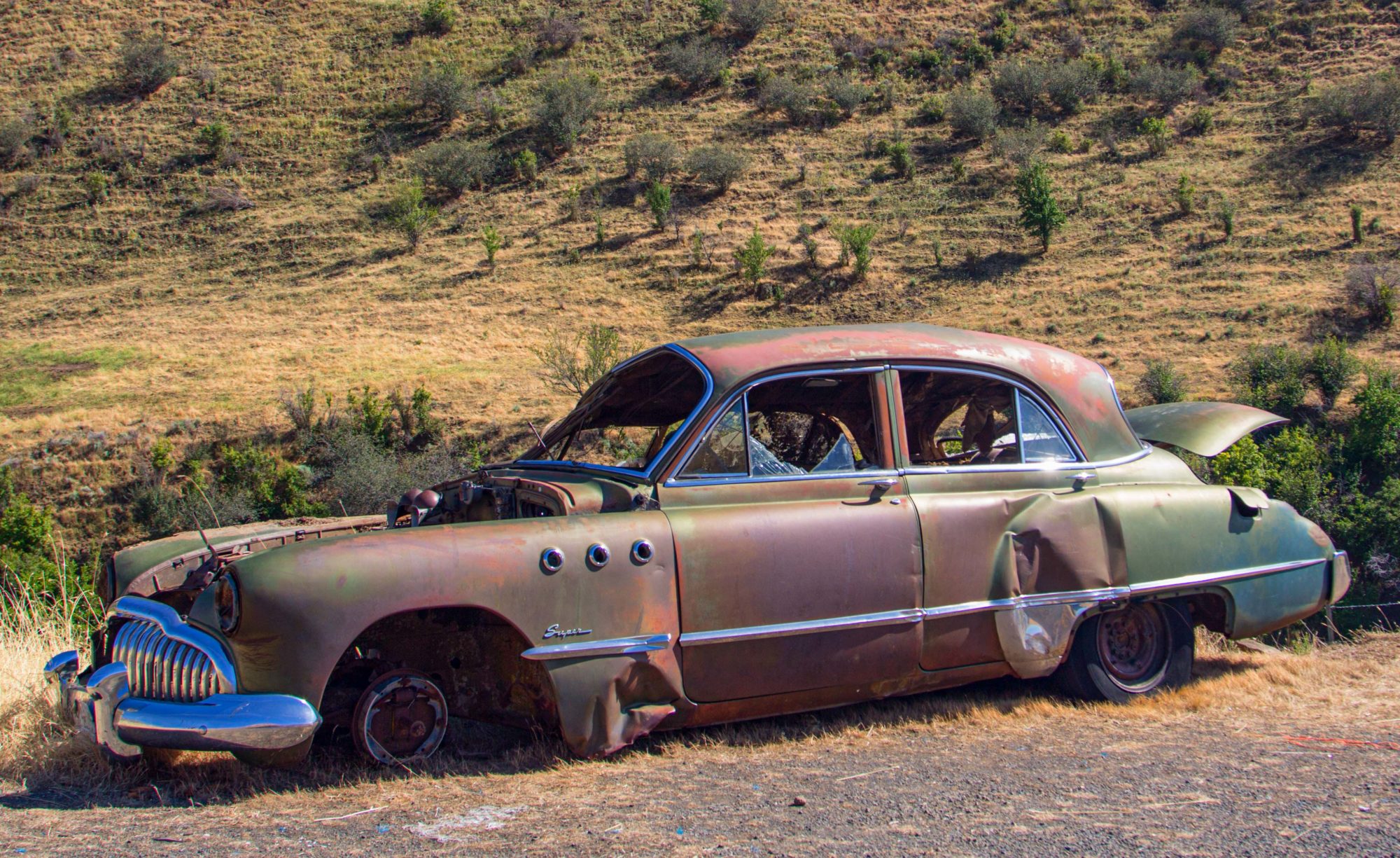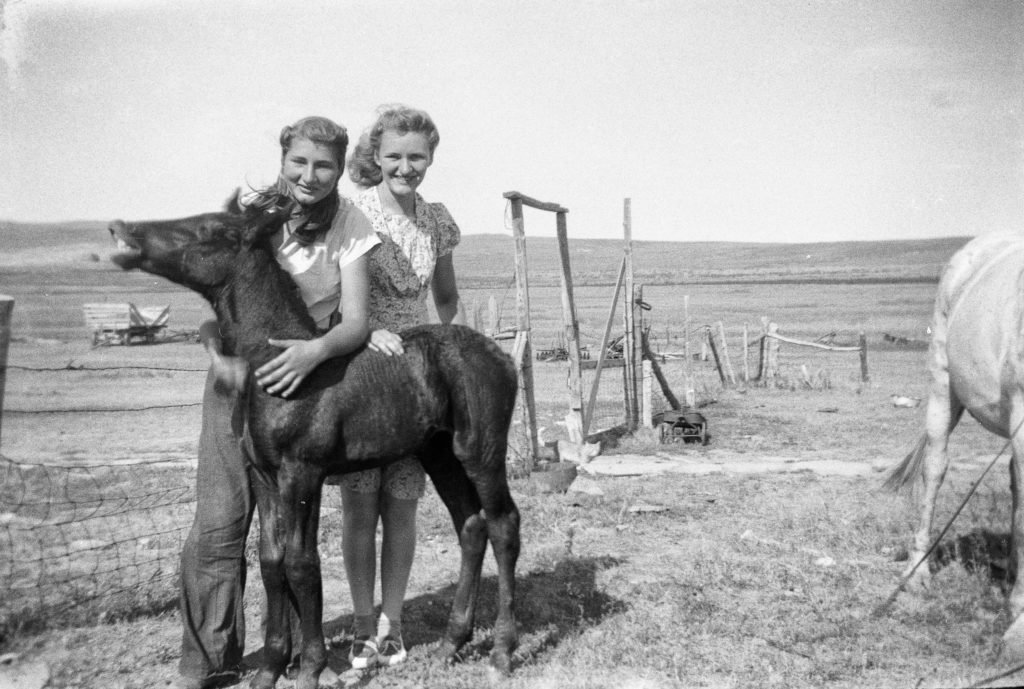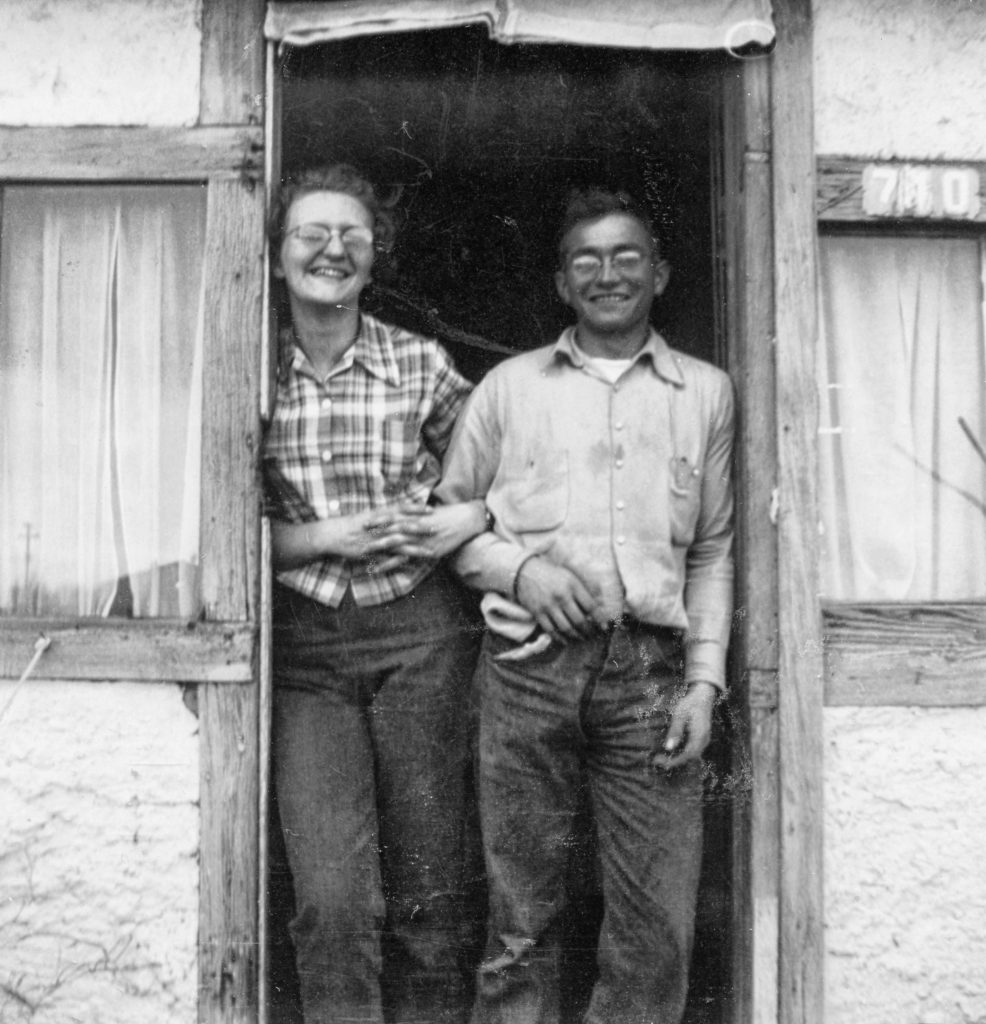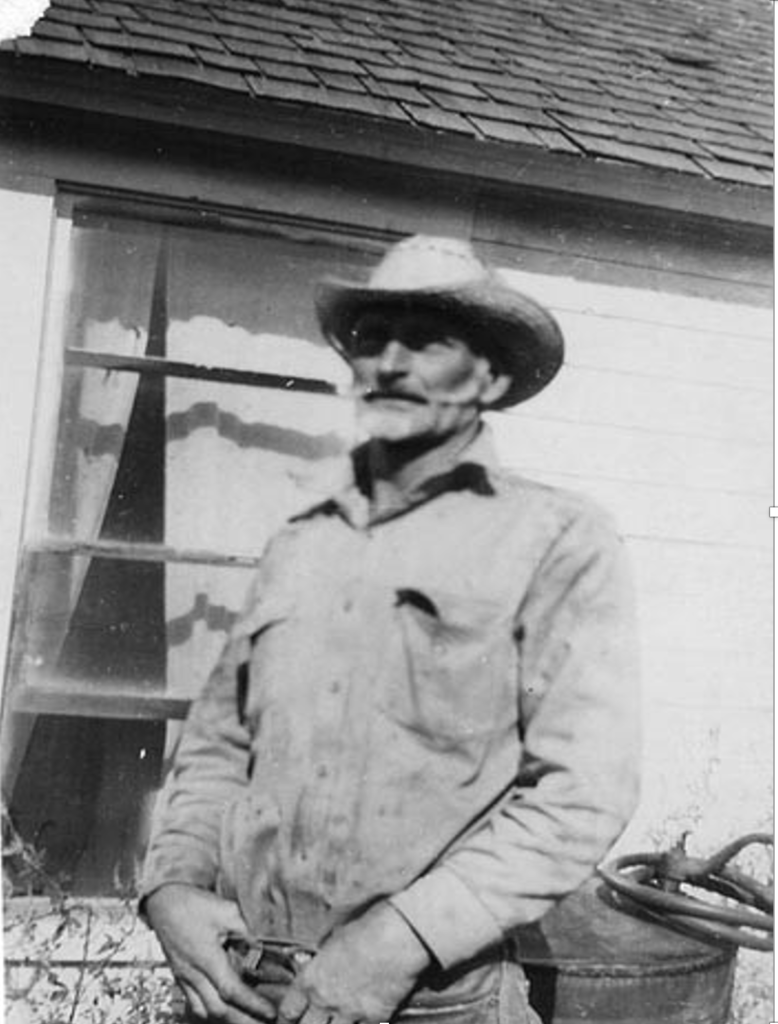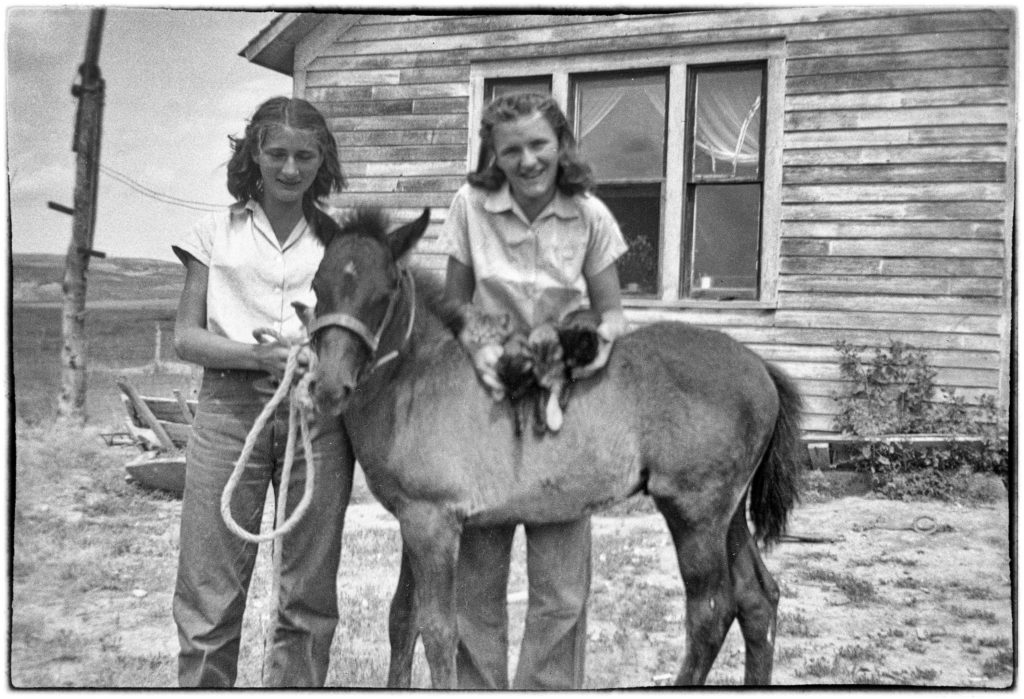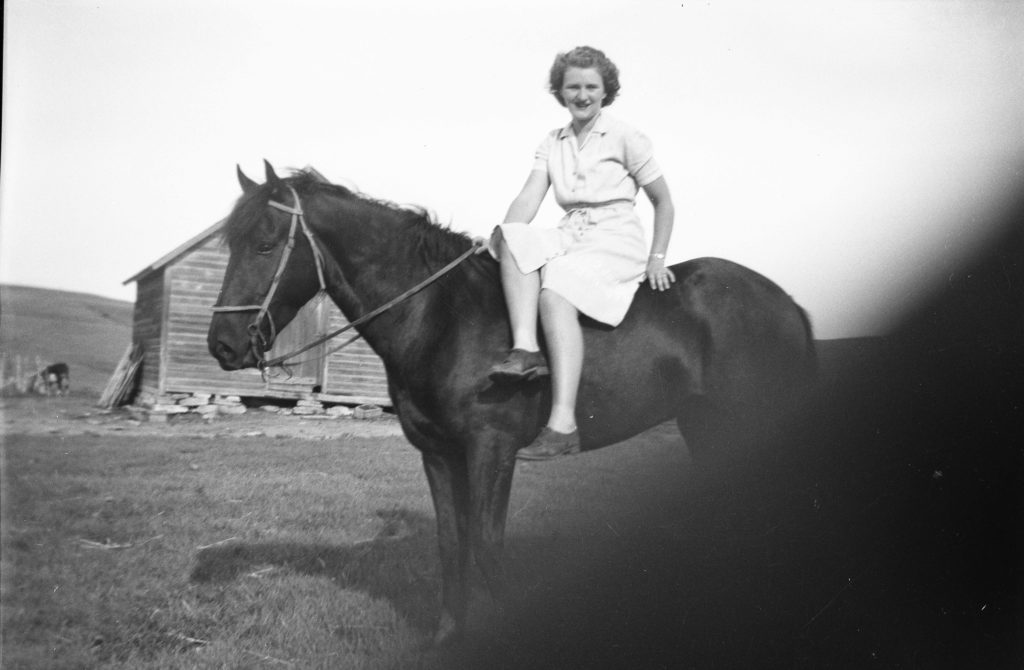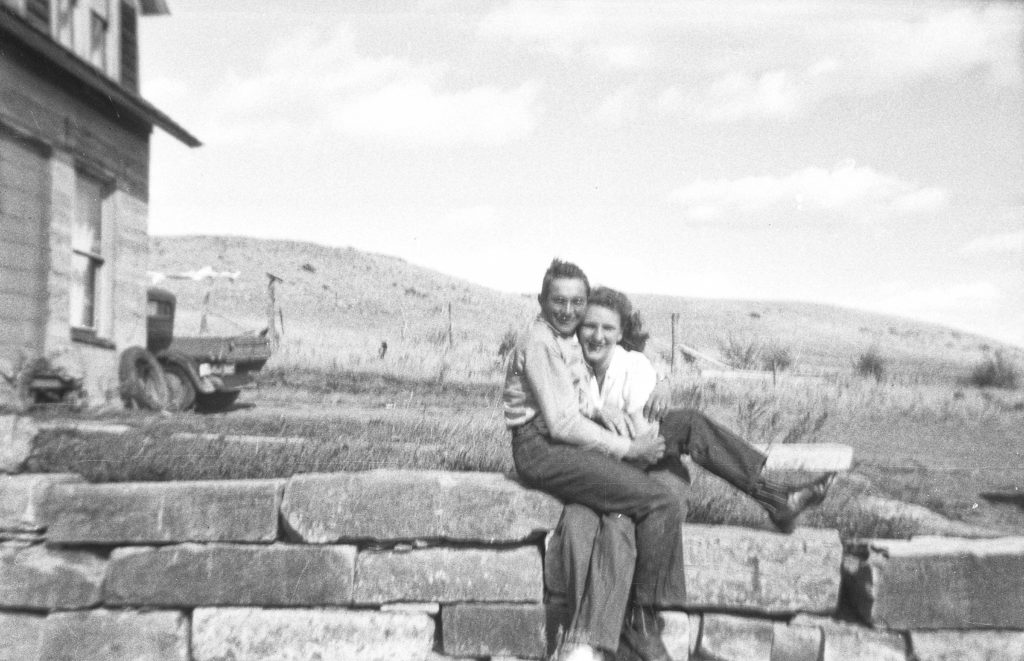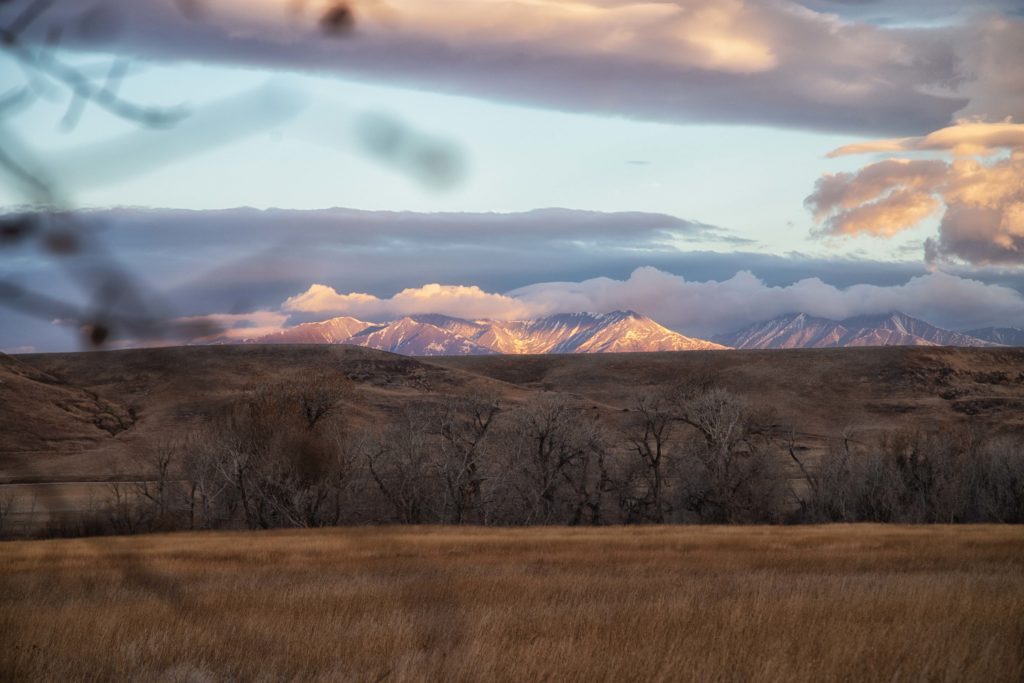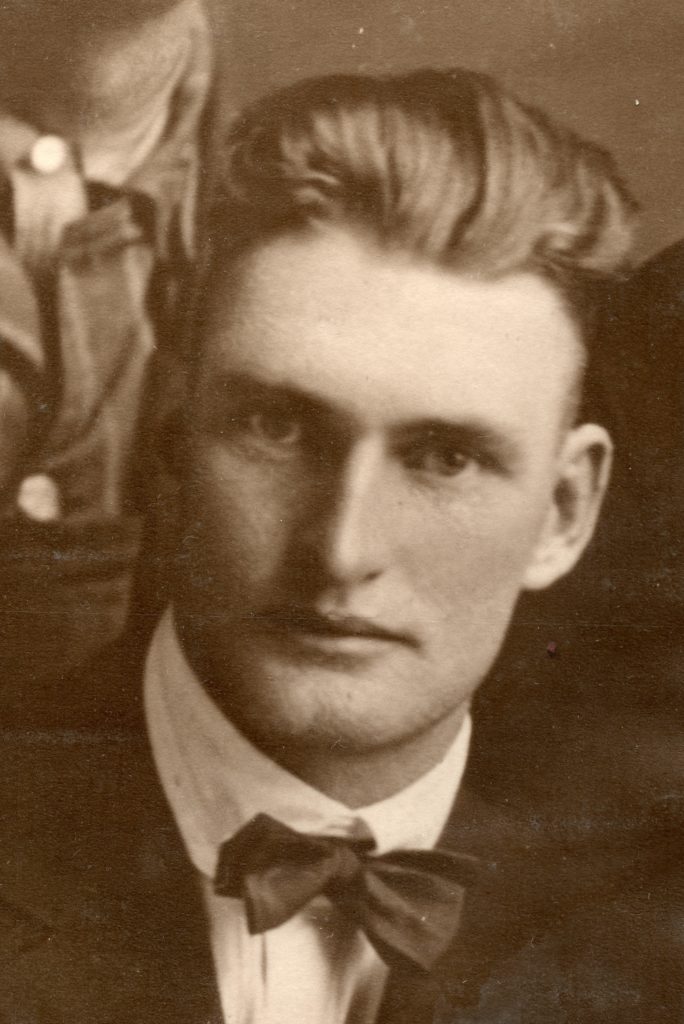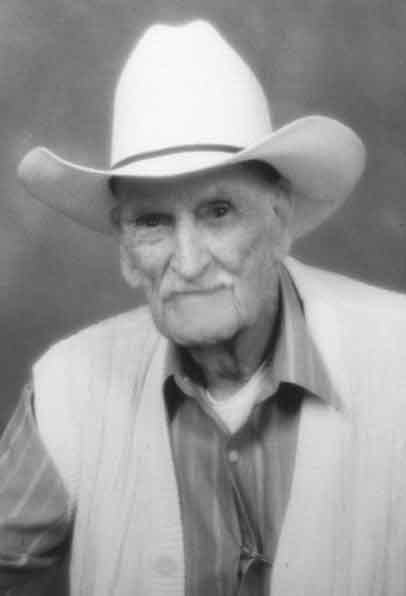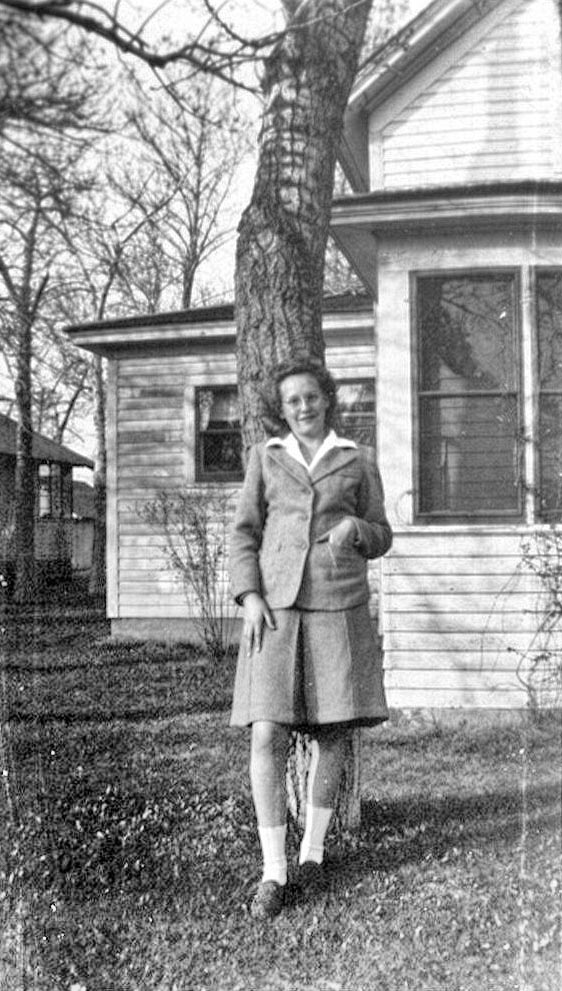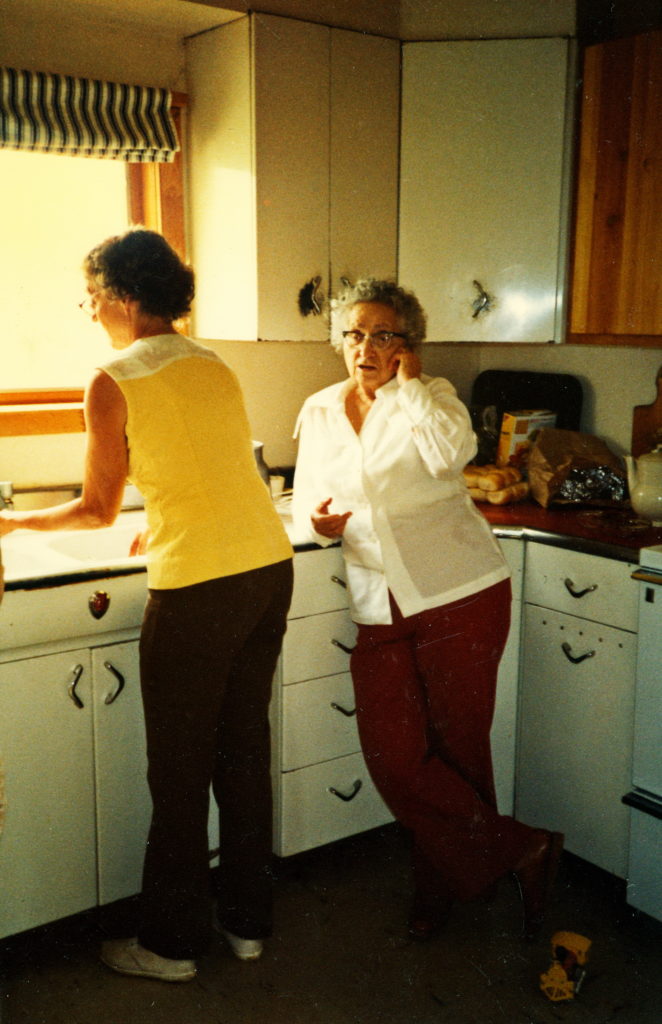Buck suffered from a sickness – lovesickness – and it was all because of a girl from the prairie. The first time he saw her, she was in a line of eighth grade graduates. She was the top of her class and Valedictorian of the rural schools. He was intrigued. She might be smart, but could she saddle a horse or milk a cow?
He expected to see the prairie girl that fall when he started his senior year at Sweet Grass High School. She wasn’t there. Instead, she and her sister went to school in Rappleje. The following year, the sisters started Sweet Grass High. Change was on the horizon and Cupid’s arrow was ready to fly.
Buck’s sister Barbara, who boarded in town, also attended high school. One weekend when she went home to the mountains forty miles away, she reported that the two Knapp girls (the girls from the prairie), were batching in the other half of the house where she stayed. Buck felt butterflies in his belly. Could it be? The girl from the prairie?
It wasn’t long before Sister Barbara brought the girls to the mountains for the weekend. The Valedictorian tugged at Buck’s heart, but could he win hers? She was a spunky gal with spark and wasn’t afraid to say what was on her mind or to stand up for what she believed. He described her as “something like a spirited bronco.” Not only could she milk a whole string of cows and saddle a horse, but she rode bareback and could fly like the wind.
On the way to an elk hunting trip with a couple of the uncles, Buck stopped in town to visit Sister Barbara – and of course, to get a glimpse of the girl from the prairie. In the house was an old piano. The prairie girl sat at the piano and her fingers flew over the keys. Buck was so impressed, he wanted to do something to get her attention. He showed his great skill of drinking seven glasses of water without stopping. It was then that he discovered her musical skills were not quite what they seemed for her fingers tickled the ivories of a player piano, and she wasn’t the player. It was a long night.
And so began the courtship of the girl from the prairie.
